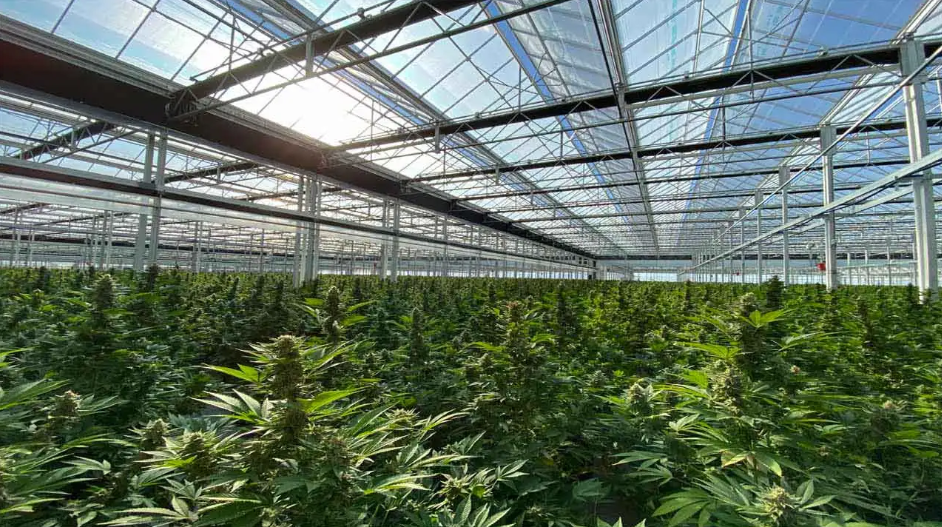Business
Supply concerns overhang New Jersey recreational cannabis market

Despite a relatively smooth start to recreational cannabis sales in April, industry officials in New Jersey continue to fret over possible supply shortfalls that could disrupt the East Coast’s newest adult-use market.
Some, in fact, argue the supply crunch has arrived. Industry officials have already reported long lines at dispensaries and low supplies of concentrate-infused products.
“At this point, New Jersey has been rapidly depleted, and I don’t see a whole lot of other grows,” said Steve Schain, a New Jersey-based cannabis attorney with Smart Counsel.
“Opening a dispensary is one thing, but opening a grow is quite another, which is what we need to have.”
According to industry officials, prospective growers face a host of obstacles that are crimping the flow of marijuana to retailers, including:
- Pandemic-related delays in the licensing process.
- Resistance to the industry at the local level.
- Difficulties securing real estate.
- The months it takes to plant and grow cannabis.
- Global economic issues such as inflation and supply-chain problems that are slowing construction of new cultivation facilities – and making them more expensive.
“We are going to be in a bottleneck anywhere from the next maybe six to 12 months, maybe even longer,” said Robert DiPisa, co-chair of the cannabis practice at New Jersey-based law firm Cole Schotz.
The prediction comes as the state’s marijuana supply chain ramps up to meet strong consumer demand in what is forecast to become one of the nation’s largest adult-use markets.
The 2022 MJBiz Factbook projects the New Jersey adult-use cannabis market will generate $625 million-$775 million in retail sales this year and will grow to $2 billion-$2.4 billion by 2026.
Small number of cultivators
Seven of New Jersey’s 13 existing medical marijuana cultivators were permitted to sell adult-use products on the promise that MMJ patients would be prioritized if supply runs low.
Regulators, however, believe that promise hasn’t always been kept.
Five of the seven were recently fined for selling adult-use products during hours reserved for MMJ patients.
From the start, the market has faced concerns over whether growers could serve the state’s 127,708 medical cannabis patients (as of April) without disrupting recreational supplies.
The seven licensees – operating out of 13 retail storefronts – continue to account for all the state’s adult-use sales.
At the same time, legal wrangling has contributed to concerns over the ability of adult-use growers to meet demand.
In February 2021, a New Jersey appellate court lifted a 2019 order that had prevented the state from issuing additional medical cannabis licenses.
But that 1½-year delay threw a wrench into plans to expand the state’s supply of medical cannabis.
According to DiPisa, many would-be cultivators lost or sold their properties when the court order was in place.
“We were supposed to have all these other medicinal cultivators online that would have been contributing to the supply chain for the medicinal market, which would free up more breathing room for the existing (cultivators) to supply more to the adult-use market,” DiPisa said.
Edmund DeVeaux, president of the New Jersey CannaBusiness Association, told MJBizDaily that options are available to get more cultivators online if need be.
“We are definitely moving towards making sure that there are cultivators that are up and running sooner rather than later,” DeVeaux said.
According to DeVeaux, the New Jersey Cannabis Regulatory Commission (CRC) can get creative with licensing to prevent supply shortages, if necessary, by issuing conditional or annual licenses.
“I would hope that the CRC would take steps if need be to make sure that maybe not just conditional licenses are awarded, but that conventional or annual licenses are awarded, in order to address what could happen,” DeVeaux said.
But Schain contends that many of those conditional licenses were issued to businesses that do not have a realistic possibility of becoming operational.
“The Cannabis Regulatory Commission dawdled in trying to please everyone. Between October 2021 and the present, a shocking number of licenses were issued to grow, process and dispense cannabis,” Schain said.
“Many of these are conditional. The provisional licensees lack financing and industry know-how to put product on shelves.”
As of June, 148 conditional licenses had been issued, according to the latest state data.
Existing cultivators have also expanded to meet demand, including Verano Holdings, an Illinois-based multistate operator that owns three medical marijuana dispensaries and a cultivation facility in New Jersey. (In New Jersey, MMJ dispensaries are called alternative treatment centers, or ATCs.)
“After we acquired our 120,000 square foot New Jersey cultivation and processing facility several years ago, we immediately began construction to turn the formerly vacant retail superstore into a state-of-the-art operation that has enabled Verano to expand capacity, streamline operations, and increase our output in anticipation of the initiation of adult-use sales in the state,” Aaron Miles, Verano’s chief investment officer, told MJBizDaily via email.
Property problems
On top of the limited number of operational growers, municipalities in New Jersey can choose to opt out of allowing cultivation sites within their borders, making it difficult to secure a grow property.
In April, MJBizDaily reported that roughly 70% of municipalities initially opted out of recreational marijuana sales and those that are participating will decide where and how many local licenses to award.
Existing medicinal cultivators can convert their businesses to sell for the adult-use market as well, but such a move requires going through additional red tape.
“They have to go through an approval process with the municipality and make sure the municipality is OK with them selling adult-use (products) as well,” DiPisa said.
“That has delayed a number of the ATCs from converting to the adult-use market.”
Source: https://mjbizdaily.com/new-jersey-recreational-marijuana-retailers-fear-supply-shortages/